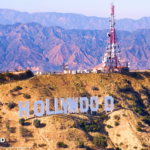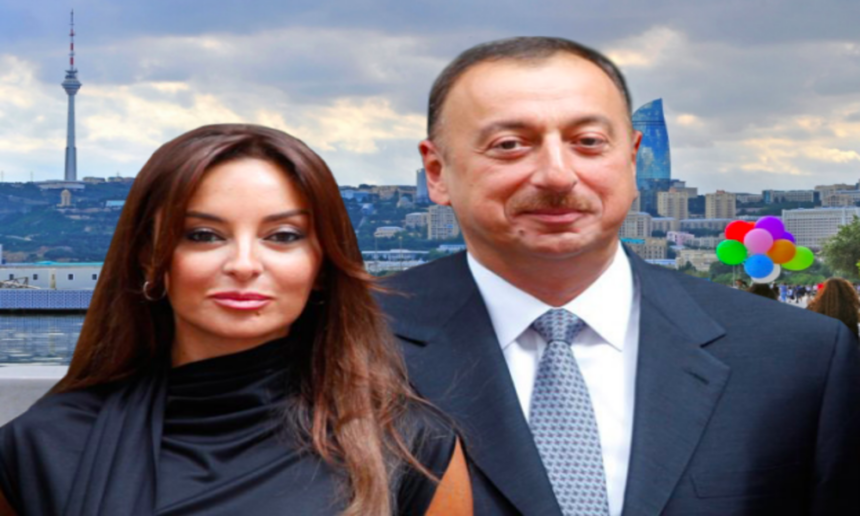Azerbaijan’s story shows how a single person can progressively amass all political power by using referendums for their own interest and amending laws. It can be seen how only one family and its tight circle of a handful of associates can seize governing authority and impose their control on what belongs to the people. Media is also fully controlled by the government while people have lost their freedom to voice their opinion.
Baku, often referred to as Dubai of the Caucasus, sits on the coast of the Caspian Sea where you can almost smell oil instead of water. While attending an international conference there – a city of uniquely designed glass buildings – I’ve realized that, despite its shiny looks, it is a place where the people live in fear and are wary of following decisions made by the government. Having dug deeper, it seems to be the right time to share these observations with our readers in Mongolia.
Far-sighted iron fists
In Azerbaijan’s first ever democratic election in 1992, Abulfaz Elchibey was elected president with 54 per cent of the vote. However, he was deposed only a year later. In August 1993, Heydar Aliyev was elected as President in a national referendum. At the time he was the newly appointed Speaker of Parliament. He had served as the leader of Azerbaijani Communist Party (1969-1981), a general in the Soviet Union’s KGB, a member of the Politburo, and a former USSR Deputy Prime Minister (1981-1987).
After being re-elected in the 1998 election, which was branded controversial and unfair by the BBC and the West, Aliyev changed the constitution in 2002 and made the Prime Minister stand next in line to the President. Prior to this change, it was the Speaker of Parliament who was next in line. In August 2003, when he was receiving medical treatment for his heart in Turkey, the 80-year-old Aliyev appointed his own son İlham as Prime Minister, making him next in line to his own presidency. Two months later İlham Aliyev was sworn in as the President after a presidential election. His father Heydar died two months later.
İlham Aliyev was re-elected in the 2008 election. International observers concluded that this election breached many protocols and processes. Within a year, İlham held another referendum and made an amendment to the constitution, which removed term limits for the presidency.
The 2016 election was more deliberate and resulted in lengthening the presidential term from 5 years to 7 years, giving the President the authority to appoint the Vice President, and reducing the minimum age for presidential candidacy from 35 to 25. İlham’s oldest son Heydar is turning 20 this year, so it required some early preparations and foresight.
In February 2017, President İlham Aliyev, who was 56 years old at the time, declared that he chose his own wife, First Lady Mehriban Aliyeva as his Vice President. President İlham Aliyev explained that this appointment was made based on the First Lady’s experiences of working as deputy chairperson of the New Azerbaijan Party and the head of Heydar Aliyev Foundation. Azerbaijan’s National Security Council supported this rationale.
The Aliyev family has been controlling Azerbaijan for half a century while the state ideology of revering one person grows almost stronger than in North Korea. Aliyev’s statues are being erected all over the country and dozens of airports and culture centers have been named after him. A few people I met with shrugged their shoulders and said that there is probably another half a century that the Aliyev rule will last because the whole family stands in line waiting for their turn.
Natural resources and power
Azerbaijan has a population of 9.7 million and a territorial area of 86,699 square km, which is roughly the same size as Khovd aimag. They speak Azerbaijani and Russian, and the vast majority are Muslims. Azerbaijan connects Asia and Europe horizontally, and Iran and Russia vertically. The country is rich in oil (reserves of 7 billion barrels, which puts them 20th in the world) and their location has strategic importance to regional security and international relations.
President İlham Aliyev paid special attention to improving Azerbaijan’s reputation internationally, which resulted in Baku hosting the 2015 European Games. A lot of new buildings and stadiums were built, and the government paid for airfare and accommodation costs of athletes from all participating nations. Baku then started becoming a location for international conferences.
However, human rights organizations are condemning the Azerbaijani government for restricting people’s freedom to speak and detaining activists and journalists. When human rights activists Leyla Yunus, her husband Arif Yunus, Rasul Jafarov, and Intiqam Aliyev were put in prison, people grew more upset and have been voicing their concerns and opposition on social media, which is yet to be controlled by the government.
In 2011-2013, protests demanding solutions to political and social issues took place in many cities. However, they were broken down with military power and those who organized the protests were jailed. International organizations and foreign radio channels were forced out of the country.
Following the agreement established in 1994 with a consortium of western oil companies to develop Azerbaijan’s Caspian oil reserves, the country started receiving foreign investment of 7.4 billion USD. Azerbaijan’s government will receive 80 per cent of the total profits when the project starts yielding profits.
The government started seeing a sudden increase in its revenue, and the small number of powerful families began becoming even wealthier.
The Panama Papers revealed that offshore accounts of Ata Holding, a company jointly owned by the Aliyevs and tax official Mammadov’s family, held 490 million USD.
According to an estimate from the Borgen Project, 85 per cent of Azerbaijan’s population are low-income and are living in conditions of poverty despite increasing economic growth in recent years and a GDP per capita at 4,000 USD. The upper class comprises 3-5 per cent of the total population.
This is an example of another country where, in spite of being rich in natural resources, the entire government is controlled by one individual while people’s rights and freedoms are severely restricted, which does not give civil society and the private sector a chance to develop and flourish. Meanwhile, people are living in poverty.
2018.07.04
Baku-Ulaanbaatar
Trans. by B.Amar







